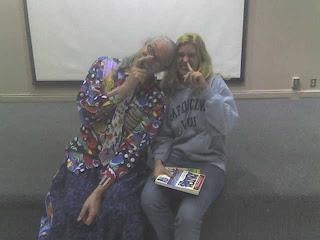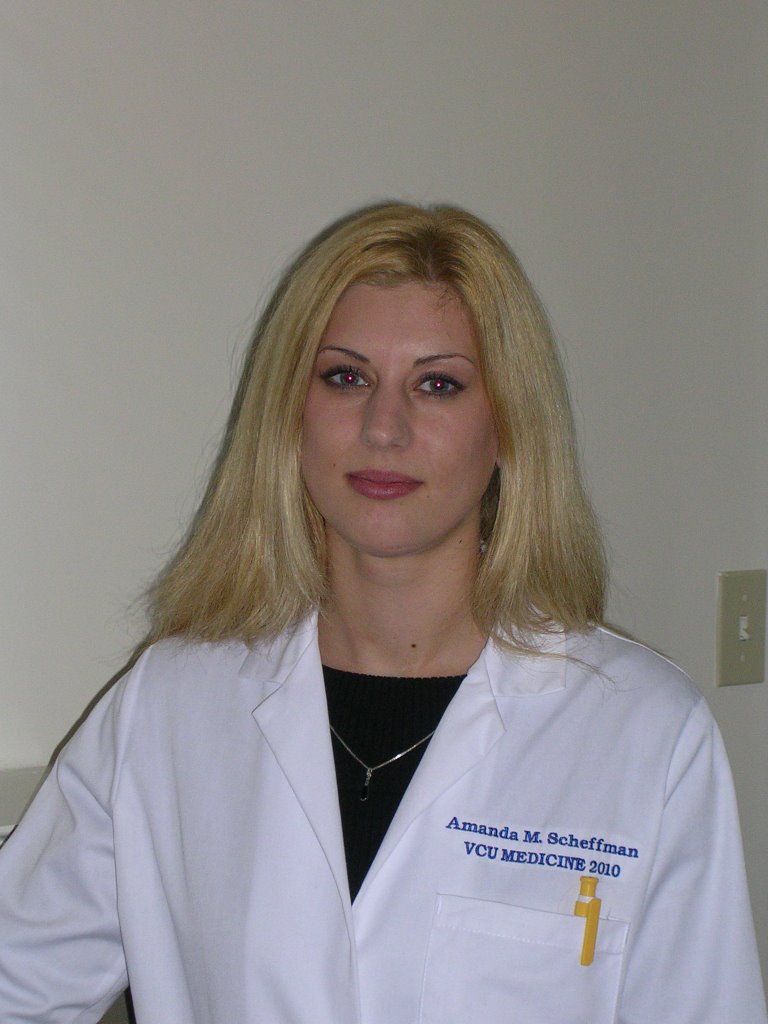I write to you on my last night as a first year medical student. Although I must be brief (neuroscience be damned), I thought that this would be a good moment to share. At this moment it is not the coffee, red bull, or Starbucks double shots that are keeping me going, but the pure excitement and drive to put this year in the PAST and to look towards the future. All in all it's been one hell of a year.
There's a part of me that wonders how I made it through. Then there's another part that knows I deserve it somehow. Despite frequent challenges and what I would describe as an incredibly miserable adjustment period, I managed to keep pushing myself and pulling myself together throughout the year. But barely. So many times I have thought, "this is too hard....there's no way this is worth it......I'm too burned out......I have nothing left".
Then I would become conscious to the fact that there is still that motivated, relentless, and frequently annoying pre-med inside of me. That person never gave up. That person knew what she wanted and worked harder than she ever had in her life to get it. I remember her. I admire her. I want to be more like her. And then somehow I would find the courage to do whatever I had to do. Funny how we backslide, isn't it?
I see this journey as being very cyclic. I have moved up a level, yet somehow I am starting at the beginning again. I am finding myself, what motivates me, what gets me through to the end of the day, and figuring out what I want next and how I'm going to take steps to get it. Believe it or not, in two years time I will be filling out residency applications, getting letters of recommendation, and traveling to interviews. Sound familiar? How painfully so....
But I do believe that when the next step comes I will be ready for it. Just as I was once a shy, awkward, and hopeful pre-med sitting in Adele's office looking for direction, I started medical school scared, awkward, and clueless. But I came into my own and blossomed at UCSD, and I have no reason to think that that will not happen here. I know I sure did learn a lot this year, and that is definitely not restricted to academics.
I am looking forward very much to second year. Although I know the workload will become even more demanding (if you can believe that), I know I am better prepared for it. I know what to expect, I know what is expected from me, and I know what it takes to deliver. I think things will become much smoother, maybe even less painful. I will be leading the Emergency Medicine Student Association as well, which I am thrilled about.
So anyways, have a great summer and don't forget to tune in next year for the continuing saga of SECOND YEAR...oh yeah......
ANSWERS SECTION (to questions previously asked in comments sections)
1. Match day occurs each year on March 15th, and represents what amounts to a giant computer spitting out the names and places where 4th years will be going to residency. Basically, at the beginning of 4th year you will fill out applications, send in letters of rec, and attend interviews. After interviews, a student must rank-order his or her choices based on preference. Meanwhile, the hospital/residency program also rank orders candidates based on their preference. All of this information is fed into the computer program, which creates matches. For example, if you rank a program 1st and they also ranked you very high, you will probably match. Maybe not so if you ranked them high but they ranked you low. Get it? Remember, not everyone will match (unfortunate). Also, there is an "early match" for some very competitive specialties (neurosurgery, anyone?), the purpose of which is to give those students a second chance to match in something else if they don't get the competitive specialty.
2. Along the same lines, dermatology is increasingly becoming very competitive, and I think it totally makes sense to wonder why. But I suscribe to the theory that it is due to increasing numbers of women in medicine that are committed to having satisfying family lives (i.e. having children and actually spending time with them) as well as careers. I mean think about it.....who has a dermatology emergency at three in the morning? So shorter, more flexible hours, no call, and you still make the big bucks as a specialist. What I'm basically saying is that you can have your cake and eat it too. Theoretically.
3. After first year you will get about two months off before second year. While first year tends to deal with "normal systems", second year tends to revolve around "when systems go bad" (i.e. pathophysiology and diagnosis). After second year, you will have to study for your Step I boards, about a month or so, which will leave you about three weeks to actually take the exam and "vacation" before third year rotations start. Third year puts you in the hospital with patients, where yes, you will supposedly apply what you have learned. This will be tested not only by your work with patients, but also by shelf exams and merciless pimping by your attendings :)
Oh yeah, and you don't get a break at all, it's twelve months :)



